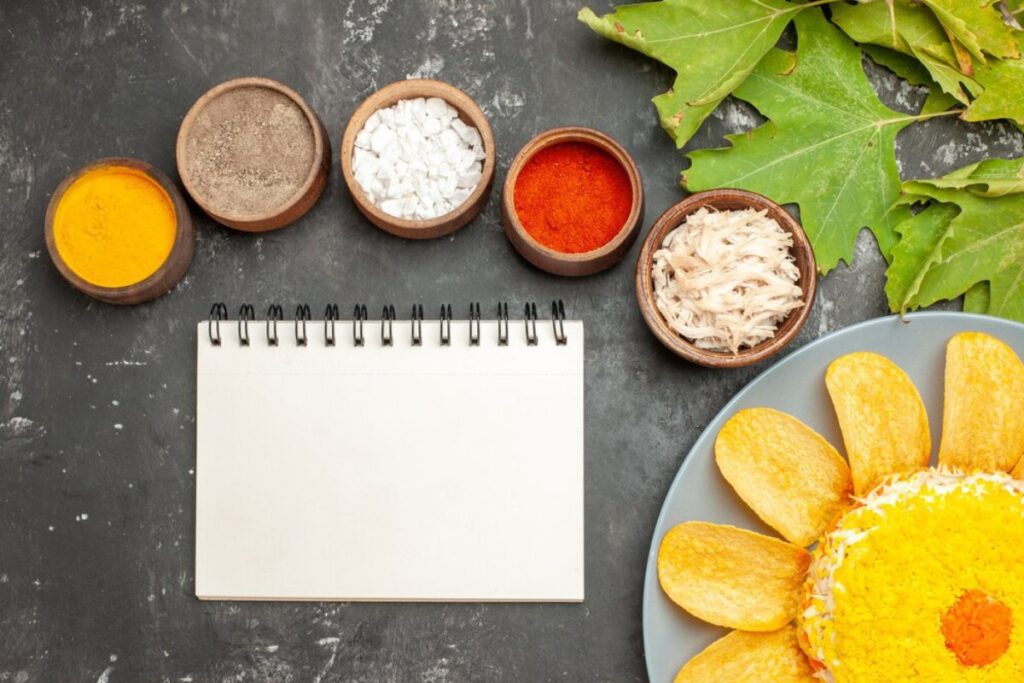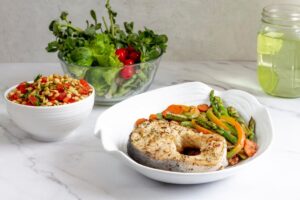The Health & Wellness Blog

Spices That Reduce Inflammation: Nature’s Potent Healers
Natural remedies are gaining more and more popularity for good health. Anti-inflammatory spices stand out among these. Not only do these common kitchen staples add flavour, but they also support long-term wellness.
These are inflammation-fighting spices that I am going to talk about in this blog. We’ll explore their benefits and practical uses and how to easily add them to meals. To power-up your diet and reduce the risk of chronic illness, try these natural healers. They could be your pantry’s best-kept secrets.
Inflammation is the body’s response to infection and injury. But when it’s chronic, it can be detrimental to health. Chronic inflammation is associated with long-term conditions such as arthritis, heart disease, diabetes and cancer. The good news is that it can be helped with anti-inflammatory spices that can also improve your health.
Key Benefits of Anti-Inflammatory Spices
Understanding Inflammation and Its Impact
Inflammation is the body’s way of responding to noxious stimuli, like pathogens or damaged cells. It’s important for healing because it attracts immune cells to the site and initiates repair. Signs and symptoms of acute inflammation
However, chronic inflammation can cause problems. It often goes unnoticed but can damage tissues over time. It is linked to serious health conditions, such as:
- Type 2 diabetes
- Alzheimer’s disease
- Cardiovascular disease
- Autoimmune disorders
- Certain types of cancer
Reducing chronic inflammation is key to preventing disease and promoting longevity. Anti-inflammatory spices can help calm inflammation and protect long-term health.
The Role of Spices in Reducing Inflammation
Spices have been used for medicinal purposes for thousands of years. In Ayurvedic and Traditional Chinese Medicine, they play a vital role in healing. Modern science supports their anti-inflammatory effects.
Let’s explore some top spices that fight inflammation.

Turmeric: The Golden Spice
Turmeric is the most famous anti-inflammatory spice, thanks to curcumin.
Turmeric Benefits:
- Arthritis relief: Turmeric can help reduce joint pain and inflammation. It’s beneficial for both osteoarthritis and rheumatoid arthritis.
- Heart health: It reduces artery inflammation, preventing plaque buildup and supporting cardiovascular health.
- Brain protection: Curcumin may boost BDNF (brain-derived neurotrophic factor), slowing cognitive decline.
- Immune support: Its antimicrobial and antioxidant properties strengthen the body’s defences.
How to Use It: Add turmeric to curries, soups, rice dishes, or golden milk lattes. Pair it with black pepper to enhance curcumin absorption.
Ginger: A Zesty Anti-Inflammatory Agent
Ginger is known for aiding digestion, but its benefits go beyond the stomach. Rich in gingerols and shogaols, ginger has strong anti-inflammatory and antioxidant effects. It reduces inflammatory enzymes and cytokines.
Ginger Health Effects:
- Digestive relief: Eases nausea, bloating, and indigestion.
- Pain reduction: Alleviates muscle soreness and menstrual pain.
- Metabolic support: May improve insulin resistance and lipid levels.
- Neuroprotective effects: Reduces brain inflammation and protects against neurodegenerative diseases.
How to Use It: Grate fresh ginger into stir-fries, steep in hot water for tea, blend in smoothies, or add powdered ginger to baking.
Cinnamon: The Sweet Healer
Cinnamon isn’t just for desserts; it’s also a health booster. Cinnamaldehyde found in cinnamon, helps reduce inflammation and oxidative stress. These are important factors in many chronic conditions.
Cinnamon Benefits:
- Blood sugar control: Improves insulin sensitivity and lowers blood glucose levels.
- Neuroprotection: Antioxidants in cinnamon may prevent age-related brain decline.
- Antimicrobial action: Fights bacteria, fungi, and viruses, boosting immune function.
- Cardiovascular support: Lowers blood pressure and LDL cholesterol.
How to Use It: Add ground cinnamon to oatmeal, yogurt, smoothies, coffee, or spice rubs for meat.

Other Notable Anti-Inflammatory Spices
Several other spices also have impressive anti-inflammatory properties:
- Garlic: Contains allicin, which lowers blood pressure, supports heart health, and boosts immunity.
- Black Pepper: It has piperine. This compound fights inflammation and helps your body absorb curcumin better.
- Cloves: High in antioxidants, cloves help reduce inflammation and support oral health.
- Cayenne Pepper: Contains capsaicin, which alleviates pain, supports metabolism, and reduces inflammation.
Additional Expert Tips & Common Mistakes to Avoid
Best Practices for Using Anti-Inflammatory Spices
Maximize these spices’ benefits with a few strategies:
- Use Them Regularly: For best results, incorporate spices into your daily meals.
- Mix and Match: Combinations like turmeric and black pepper or ginger and cinnamon can enhance effects.
- Buy in Small Quantities: Spices lose potency over time. Purchase smaller amounts and store them in airtight containers away from heat and light.
- Explore Cultural Dishes: Try recipes from regions known for spice use, like Indian dal or Thai curry.
Common Mistakes to Avoid
Even natural remedies have guidelines.
Avoid these pitfalls:
- Too much turmeric and other spices can upset your stomach or interfere with your medications.
- Neglecting balance: Spices can enhance a healthy lifestyle but shouldn’t replace medicine or a balanced diet.
- Ignoring quality: Choose high-quality, organic spices when possible. Low-grade spices may lack potency.
- Forgetting bioavailability can be an issue. Some compounds require fat or other substances, like piperine, to be absorbed well.
Advanced Insights and Expert Recommendations
Exploring the Science Behind Anti-Inflammatory Spices
Research continues to uncover how spices fight inflammation.
For example:
- Curcumin downregulates pro-inflammatory enzymes and upregulates antioxidants, offering a double benefit.
- Gingerol interferes with the production of prostaglandins and leukotrienes, key inflammation mediators.
- Cinnamaldehyde affects metabolic pathways linked to obesity, reducing low-grade inflammation.
These findings show that spices influence the body at a cellular level.

The Role of Diet and Lifestyle
While spices are helpful, they work best as part of an overall anti-inflammatory lifestyle.
This includes:
- Eating whole foods: Focus on fruits, vegetables, whole grains, nuts, and seeds.
- Staying active: Exercise regulates the immune system and reduces inflammation.
- Managing stress: Chronic stress raises inflammatory markers like cortisol.
- Getting quality sleep: Lack of sleep is linked to higher inflammation levels.
Personalised Approaches to Inflammation Management
Not everyone reacts to spices the same way. Consider:
- Allergies or sensitivities: Some may react badly to certain spices.
- Medication interactions: Spices like turmeric can interact with blood thinners or diabetes medicines.
- Genetic differences: Genetic factors may affect how your body processes spices.
Consult a healthcare provider or dietitian to ensure you’re using these spices in a way that supports your health.
Embrace the Healing Power of Anti-Inflammatory Spices
These spices have been there all along. Turmeric, ginger, cinnamon, garlic and others are not only flavorful, they’re functional. Adding anti-inflammatory spices in your meals can aid in fighting chronic inflammation.
You don’t have to change your whole diet all at once. Find something small you can do: add turmeric to your smoothie, steep some ginger tea, throw some cinnamon on your toast. Small adjustments can add up significantly over time.
What is your favourite anti-inflammatory spice or herb? Do you have a recipe that helps you feel your best? Share your tips and experiences in the comments below.
Let’s inspire each other to embrace nature’s potent healers—one flavorful bite at a time.









